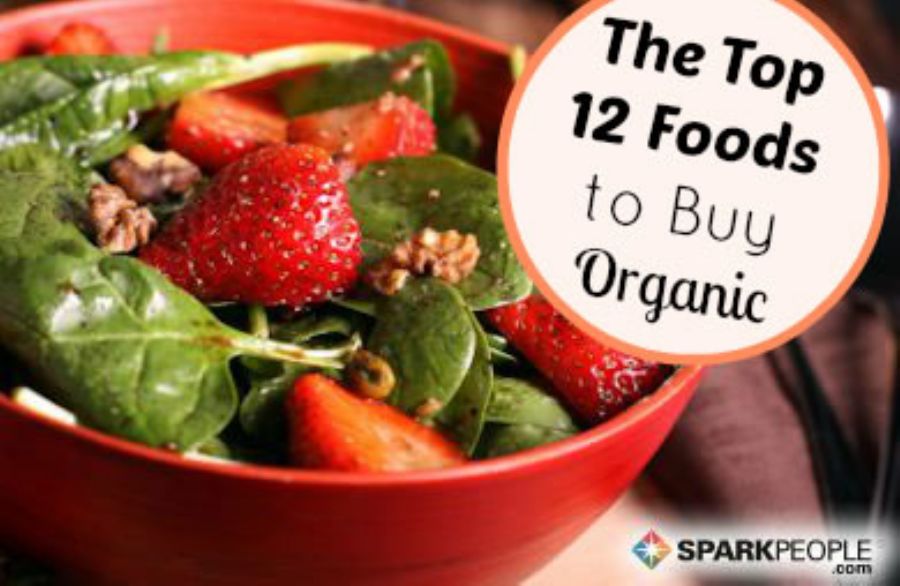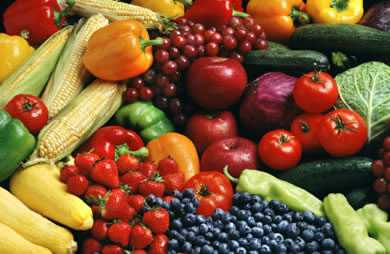Top 12 Foods to Buy Organic
-

Apples
Pick organic apples when they're at their peak, usually during the fall. You can get organic apples year-round in the supermarket. They should be firm and free of wrinkles or bruises. Store them in the fridge if you don't plan on eating them within a week; otherwise, keep them in a bowl on the countertop. Full of fiber, these fruits are a great portable snack. Carry one in your bag to ward off hunger—or serve them alongside lean pork or chicken.
-

Strawberries
Strawberries are the most popular berry in America, and for good reason: They're sweet, delicious and a great source of Vitamin C and fiber. Organic strawberries are in season during the summer. The ones you find in the supermarket in winter likely will be flavorless and hard—buy frozen or stock up during the summer. To lengthen the life of berries, don't wash them until ready to eat. Store in a single layer on baking sheet covered in a damp dish towel. While strawberries reign supreme in desserts, these berries are also great in a salad (mix greens with feta or goat cheese, a handful of your favorite nuts, a few chopped strawberries and toss with a balsamic vinaigrette!) and fabulous in a salsa.
-

Imported Grapes
Who doesn't sneak a grape or two from the display at the supermarket? Make sure you're getting organic grapes if they're from overseas, or you'll get a mouthful of chemicals in each bite! Grapes are available year-round. Wash them when you get home, then store them in the fridge for up to two weeks. Freeze clean grapes for a fat-free treat (dip them in melted chocolate to be decadent!), or eat them by the handful when you're on the go. Serve chicken or tuna salad "Veronique" style (a fancy way of saying that there are green grapes in a dish) or scatter halved grapes atop a grilled chicken breast or broiled fish fillet.
-

Celery
Organic celery spruces up savory dishes, from Thanksgiving stuffing to vegetable soup. Celery sticks taste great stuffed with natural peanut butter or low-fat cream cheese. Chock full of fiber and available year-round, add some to your favorite salsa—or use it to scoop up a low-fat tuna or chicken salad. Keep celery refrigerated in the coldest section of the fridge, and it will last for weeks.
-

Peaches
When is organic produce worth the added cost, and when should you save some cash and go with conventional varieties? Check out which foods you should try to buy organic to reduce your pesticide exposure by 90%.
For peak flavor, buy organic peaches in season (during the summer). Store peaches on the counter until they're ripe, then refrigerate until ready to use. Look for taut skin, with no bruises or wrinkles. They should be firm to the touch but give a little when gently squeezed. Eat on their own, or make pies, crumbles or cobblers. Slice a ripe peach over your morning oatmeal or layer with yogurt and granola. Feeling adventurous? Chop one peach, half a white onion, a bit of jalapeno to taste and some fresh tomatoes. Season with salt, pepper and fresh cilantro or parsley for an easy salsa to top baked chips
-
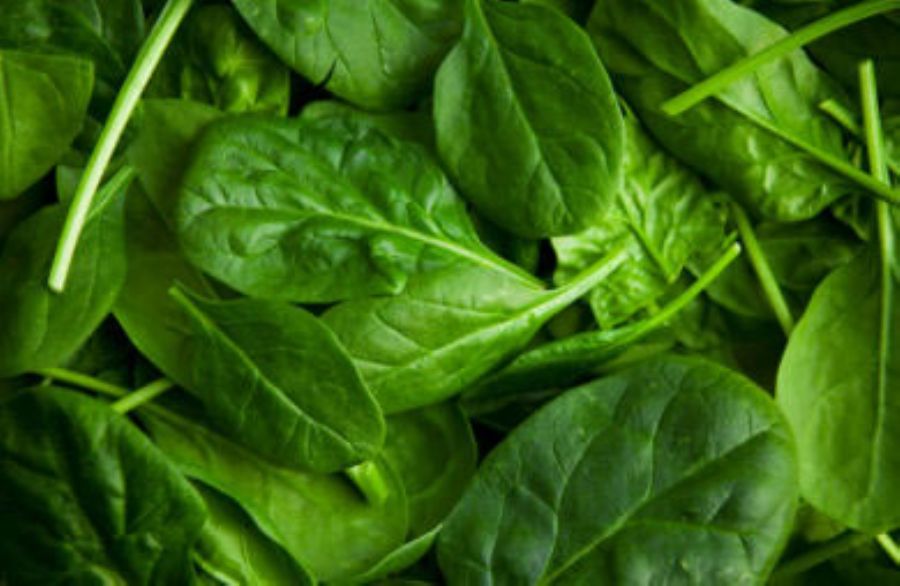
Spinach
Looking for a great source of iron? What about potassium, calcium and beta-carotene? ALL of these nutrients can be found in spinach!
There are only so many spinach salads you can eat in a week and only so many sandwiches to add it to. Try mixing it into soups or stews. Stir it into pastas, including lasagna. Sautéed spinach is also quite delicious, especially with some olive oil and garlic. Experiment and enjoy! Enjoy those dark, leafy greens that are packed with a nutritional punch.
-

Peppers
Organic bell peppers are packed full of flavor and antioxidants. With red, orange, yellow, green and even purple varieties, they're a crunchy and low calorie snack. Rich in Vitamin C, chop peppers into salads, roast and toss in pasta sauce and hummus, or stuff with beans, rice, or lean ground meat. Look for firm, wrinkle-free peppers, and be sure to store them in the refrigerator.
-
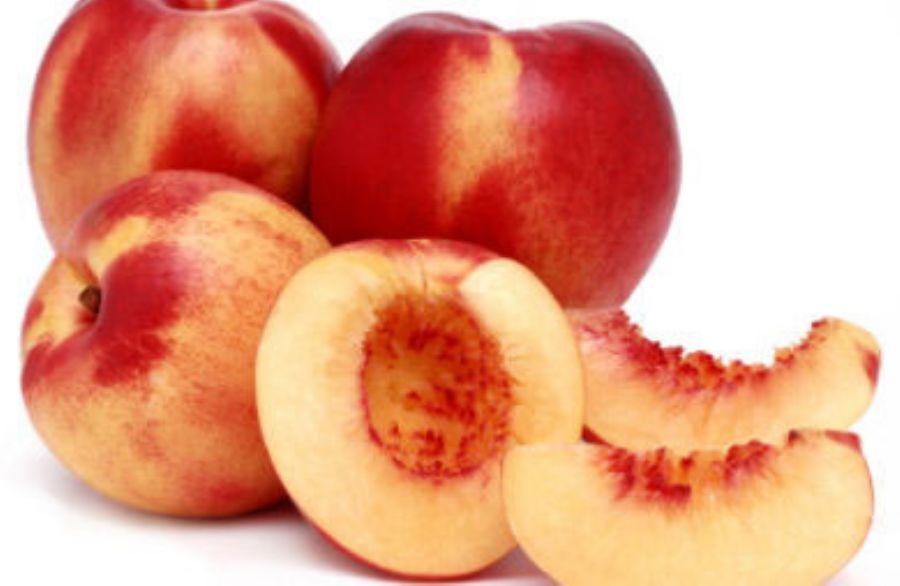
Nectarines (Imported)
Nectarines, a close (but fuzz-free) relative of the peach, are available the same time of year—from May through September, with a peak in July and August. Choose firm, wrinkle-free fruit, then allow to ripen on the countertop. Organic nectarines are delicious on their own, or try adding them to a barbecue sauce or grilling them alongside some chicken breasts.
-
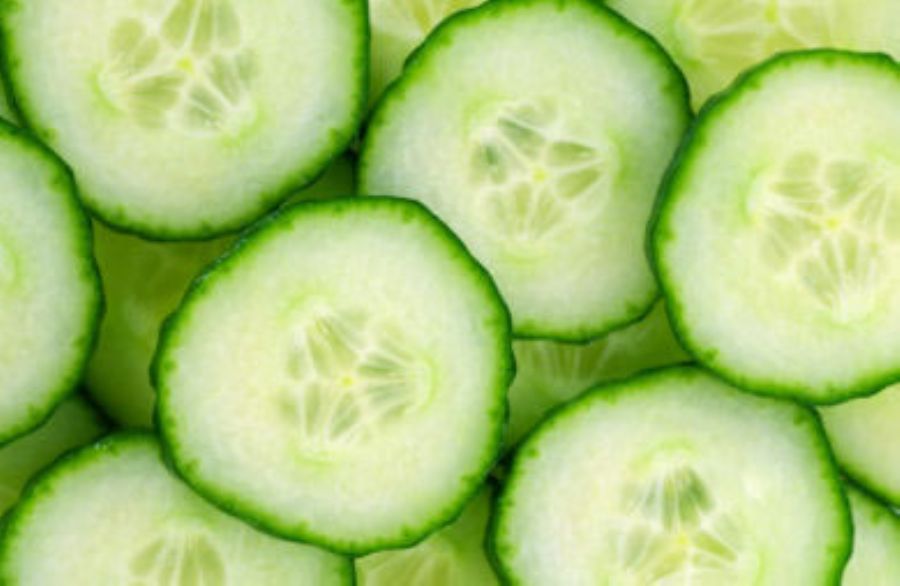
Cucumbers
Cucumber adds a satisfying, hydrating crunch to any dish you serve it in. It's also a great source of vitamin K and has anti-inflammatory properties. Choose smooth, firm cucumbers, and make sure they are not bruised.
To prepare, try tossing chopped cucumber into pasta salads, or stacking cucumber slices on a sandwich. The cooling properties of cucumber also make it an excellent accompaniment to a spicy meal. Try raita, a cucumber-yogurt sauce, alongside your next mouth-burning dish for welcome relief!
-
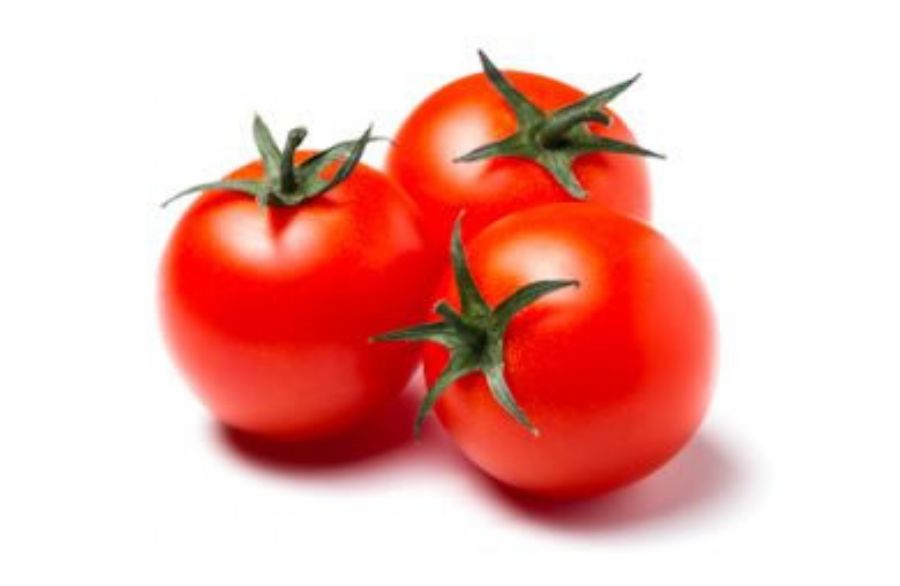
Cherry Tomatoes
Add sweet organic cherry tomatoes to pastas or salads for a burst of vitamin A, vitamin C and lycopene. You can also chop them up and make them into a fresh homemade salsa to serve with baked tortilla chips. Choose tomatoes that have a rich color and taut, firm skin, and be sure to store them at room temperature so they don't get mealy.
-
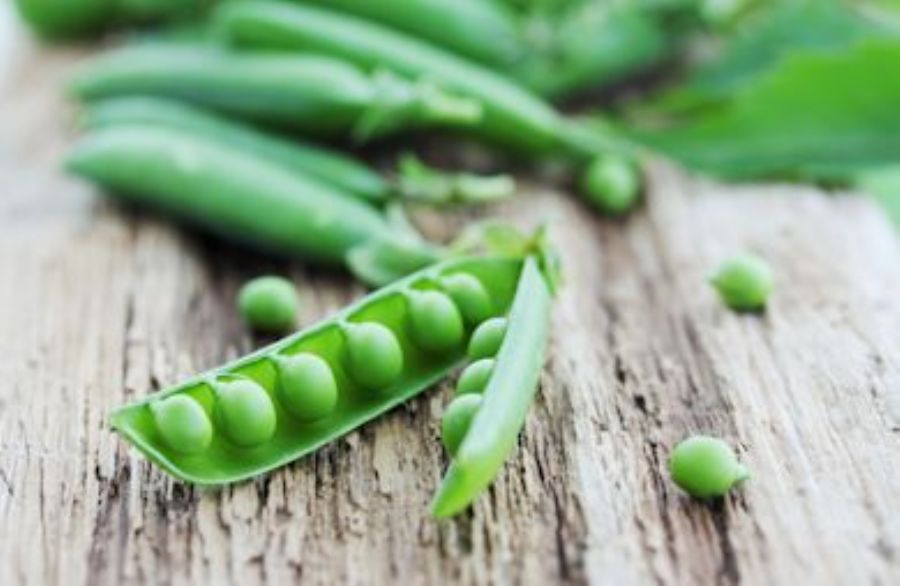
Snap Peas (Imported)
Snap peas are a simple way to add crunch and fresh flavor to any dish. Throw them into salads and stir-fries for a pop of green.
Snap peas are rich in vitamin c, vitamin K and fiber. Look for firm, crisp pods and store them in the fridge.
-
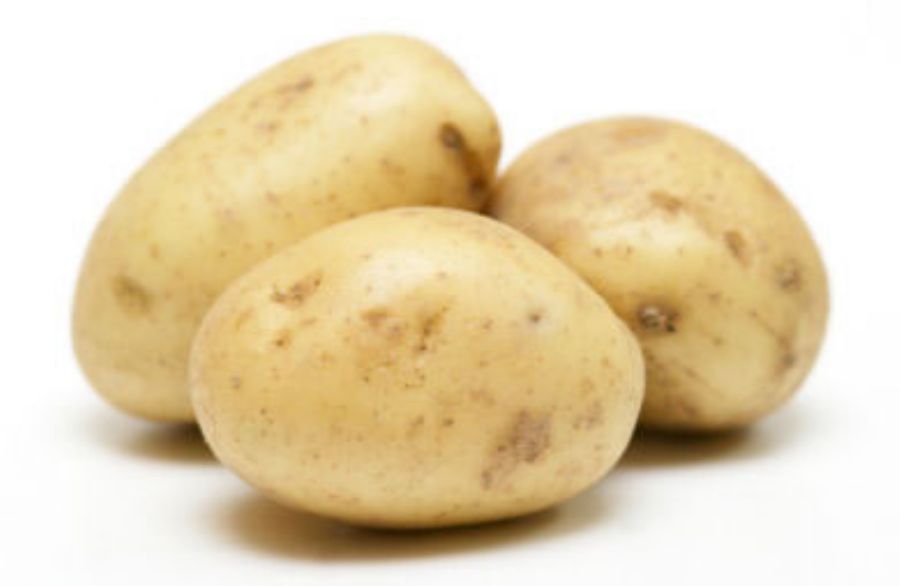
Potatoes
Potatoes can be a great source of carbohydrates and nutrients, including vitamins C, B-6, and folate and fiber (4 grams when you eat the skin).
To enjoy your potatoes in a healthy way, cut them into 1-inch thick slices, season with garlic, herbs and pepper and bake in the oven until soft and golden brown.
See more nutrition slideshows
The Dirty Dozen
When is organic produce worth the added cost, and when should you save some cash and go with conventional varieties? Check out which foods you should try to buy organic to reduce your pesticide exposure by 90%, according to the Environmental Working Group.
Start Slideshow
Apples
Pick organic apples when they're at their peak, usually during the fall. You can get organic apples year-round in the supermarket. They should be firm and free of wrinkles or bruises. Store them in the fridge if you don't plan on eating them within a week; otherwise, keep them in a bowl on the countertop. Full of fiber, these fruits are a great portable snack. Carry one in your bag to ward off hunger—or serve them alongside lean pork or chicken.
